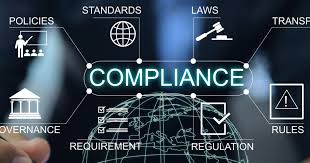


Corporate compliance is at its essence a company’s compliance with laws, regulations, internal policies, and ethical standards.
In an era characterized by a high rate of digital transformation and global regulations tightening, corporate compliance in finance has become a strategic pillar for business. With the financial institutions experiencing more complex regulatory environments, the need for strong compliance frameworks has never been higher. Compliance is not just about not incurring penalties anymore in 2025, it is about protecting your reputation, securing your operations and gaining a competitive advantage.
In this article, we discuss the changing nature of corporate compliance, what it means in the financial industry, key risk areas and how companies can deliver to regulatory demands through effective compliance programs and services.
Corporate compliance is at its essence a company’s compliance with laws, regulations, internal policies, and ethical standards. In the finance industry, this is a vast range of requirements including anti-money laundering (AML) and Know Your Customer (KYC) rules, data privacy regulations and ESG (Environmental, Social, and Governance) regulations.
Comprehending corporate compliance enables financial institutions to have clear policies which are based on local and international regulations. It guarantees that all aspects of a company’s operations including employee behaviour and financial reporting are legal, transparent and industry standard.
In order to cope with the increasing complexity of compliance obligations, many businesses now outsource their corporate compliance needs. These services offer strategic direction, technology platforms, and risk assessments to enable companies to meet their obligations in an efficient manner.
Corporate compliance services typically include:
By combining these services, financial institutions can simplify compliance work, minimize manual mistakes, and react quickly to new regulations.
With the rise of financial crime, cyber threat, cross border transactions, regulators are setting the bar higher for financial institutions. In 2025, companies will be required to show not only that they have compliance programs, but that those programs are actually working.
This is why a robust corporate compliance is critical:
The world’s financial authorities are tightening the rules on AML, fraud detection, data privacy, and sustainable finance. Non compliance may result in large fines and legal proceedings.
The robust compliance culture reduces the incidence of internal misconduct, data breaches, and unethical practices that can threaten the business.
Stakeholders value transparency and accountability very much. Good compliance record increases brand trust among investors, customers, and regulators.
Most jurisdictions need proof of compliance before issuing licenses or partnerships. The fulfillment of these requirements provides opportunities for expansion.
Even with the benefits, organizations are still exposed to several corporate compliance risks that may affect their operations:
In order to mitigate such risks, companies need to carry out regular audits, automate monitoring and invest in compliance training.
Compliance from a proactive point of view starts with the establishment of comprehensive corporate compliance programs. Such programs should be customized to the size, structure, industry and jurisdiction of the company. Key components include:
When well designed and implemented, these programs can be a powerful guard against compliance breaches.
One of the things you do to ensure compliance is to check who you do business with. Corporate verification guarantees that your partners, vendors and clients are real and not engaging in illegal or unethical activities. This process includes company registration, beneficial ownership and regulatory history.
Corporate verification is also an integral part of Know Your Business (KYB) requirements to avoid fraud, money laundering and reputational risk.
Corporate compliance in finance in 2025 is not a regulatory box to tick; it is a vital enabler of long-term success. Through the understanding of the meaning of corporate compliance.
